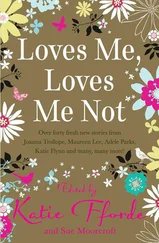The crowds walking by the car toward the Champ de Mars grew thin. Songs and prayers began to waft along the morning breeze from down the street. The festivities were off and running. The dead were no doubt smiling. Some of them in heaven were probably pointing fingers at Natasha and having a laugh. Some people looked into the car and at Natasha and then asked her if she needed help, a push, something. No, no, she said, waving them off.
After a while people looked at her like she was crazy to believe the car would start at any point that day or crazy to want to drive the vomit-colored pile of junk in the first place. Miracle of miracles, the car started. Easing into the street, Natasha saw fewer and fewer people. Fort National had been severely hit by the earthquake. Buildings looked like bombed-out skeletons. Natasha could see dead bodies inside them. Corpses propped up to sitting position. By who? For what? In front of some other buildings, she saw corpses in the usual positions, flat on their backs and wrapped up, mummified. She sped up. In front of the Musée du Panthéon National Haïtien, off the Champ de Mars, she saw mothers and grandmothers and fathers and sons and daughters embrace. Everyone, it seemed, had an arm wrapped over another’s shoulders, eyes shut tight in prayer. After a while, she turned onto Avenue Ducoste. Where the Air France store once stood as a symbol of the great world off the island, Natasha saw only two stories of gray rubble. She also saw a woman on her knees praying to the sky with two plane tickets in her hands. Natasha crossed herself. There but for the grace of God go I, she said. She dared not imagine how those tickets, Air France, and the earthquake had hurt that woman. She dared not. Before long, Natasha had to make a left turn on Chemin des Dalles, and then a right turn on Avenue John Brown. Big like its namesake, Avenue John Brown was orderly this day. Some foot traffic headed toward the Champ de Mars. Most people sat pensively on wooden chairs at storefronts. Not for the first time, Natasha noticed the Haitian flags. They were everywhere and bigger and, for some reason, redder, whiter, and bluer than she ever remembered. Avenue John Brown was also called Lalue, and it was where Natasha and Bobo had seen the fearsome crowd and tried to rescue the small boy from getting trampled. What happened to you, young man? Natasha thought. Where are you now? I hope you’re safe.
Lalue then went through Bourdon, an upmarket neighborhood. Stalls selling sculptures made of cans and hubcaps lined the sidewalk behind which was a deadly cliff. Natasha couldn’t help naming the streets and took pleasure in the bumps and grinds of their potholes, as if for the first time. She was renewing her relationship with the street, the city, the earth, and so far, so good. You only get one hometown, she thought. You should be grateful to be alive in yours, Natasha. Turning left on rue Marcadieu, she soon reached Delmas 40B, and then she couldn’t help egging the Datsun to go faster eastward, toward Pétionville. Around Delmas 95, she got stuck behind a giant United Nations peacekeepers’ tank. The destroyed Caribbean Market came up on her right. Since goudou-goudou, people couldn’t stop talking about the destruction of this grand institution, although most Haitians couldn’t afford to shop in it. Despite her efforts, Natasha couldn’t help but imagine the serene scene inside the supermarket the minute before goudou-goudou. A supermarket late in the afternoon in any decent neighborhood in the world is a cool buzz of active mothers and fathers and children picking up vegetables, drinks, condiments, and cereal for the night’s dinner and the next day’s breakfast. It’s adults forgetting the stresses of the day in favor of prosaic issues like sex and good meals and homework and trifling TV sitcoms. It’s children enjoying a break between the tyranny of school and homework to release pent-up energy in slick aisles while begging for candy and cookies and looking forward to riding a sugar high home. All those people were completely crushed by the supermarket and buried inside it because of the earthquake. When people talked about the many iconic buildings ground to dust by the earthquake — the Palais de Justice, the midwives’ school, the National Palace — they rarely failed to note that the supermarket had to have been at full capacity when goudou-goudou came.
At the corner of Delmas where Pétionville started, Natasha saw the old cemetery, the one that was destroyed, not by Mother Nature, but by mother mayor, a public servant with oversized renovation plans. Rue Metellus was empty. Some storefronts had their usual crowds. Where would men hang out in the middle of the day if they couldn’t hang out at garages? But most shops and restaurants were closed for the day, a strange sight, for this was usually a very busy intersection. I guess people really needed that day off, Natasha thought. God bless them.
At Place Boyer, she had to slow down and start looking for a parking spot. Poking her head inside Brasserie Quartier Latin, the fancy restaurant favored by foreigners, Natasha saw a group of them drinking and laughing at a table on a veranda. Why should they be mourning anything? Natasha thought. To hear Jean-Richard tell it, Haiti’s disaster answered many of their prayers for wealth, international adventure, and temporary sanctity. They tended to work in Haiti mostly on three-month assignments, so most of them would be returning to their less sanctimonious selves soon enough. That’s what happens to people when they go home. Nothing humbles like home.
The villa on Place Boyer where Alain Destiné was born and raised by his doting father, Villard, and his artist mother, Katherine, was not necessarily the grandest villa by Pétionville’s standards, but it was stately, with towering hedges of hibiscus and looming centuries-old almond trees, a riot of fragrant reds, pinks, and greens. Its most famous feature, of course, was the bookstore on the corner, Librarie Sidney-Nina. Named after dear expatriated cousins of Katherine’s, the store featured the smartest collection of books by Haitian authors in English, French, Spanish, and even Creole in the city, as Alain had once bragged to Natasha. Everyone from Jacques Roumain to Georges Anglade to Dany Laferrière not only had his entire bibliography stocked there, the authors also visited often, mainly to chat with Alain’s dad. A voluble raconteur with more than a passing resemblance to Harry Belafonte, Villard Destiné knew everything about everything in Haiti’s cultural history. If he liked a customer well enough, he might break out a bottle of five-star Rhum Barbancourt to share a drink or five and insist that customer take the books he was browsing home as a gift. On this day, Librarie Sidney-Nina was closed.
The green gate of the villa creaked after Natasha pushed it in. The driveway had a black Range Rover that, judging from its blanket of white dust and dry leaves, had not been driven or cleaned in a while. The windows on the second and third floors of the villa were filled with cobwebs. Natasha was nervous. Unsure what kind of welcome she’d get from Alain’s parents, she walked carefully.
Allo? Allo? She said.
Go away!
Natasha saw Alain Destiné’s father looking down on her from the first-floor balcony, and Villard was pointing a gun at her.
Get out of here! he said.
Mr. Destiné? she said. Mr. Destiné! What are you doing? Put the gun down.
What am I doing? I’m getting ready to shoot me a looter trespassing on my property. That’s what I’m doing. The question is, what the fuck are you doing here? You’re not welcome here.
I came, I came… to pay my respects, sir. I loved Alain too.
Alain’s dad shot Natasha. And missed. Natasha screamed and ducked and ran around the driveway frantically, looking for cover. Natasha crouched behind the Range Rover on her knees and prayed to God and Jesus her savior to save her one more time, to tell her what to do with her life, how to make things right in her fucked-up life. Then the answer came. Villard shot two more times, missing widely.
Читать дальше












